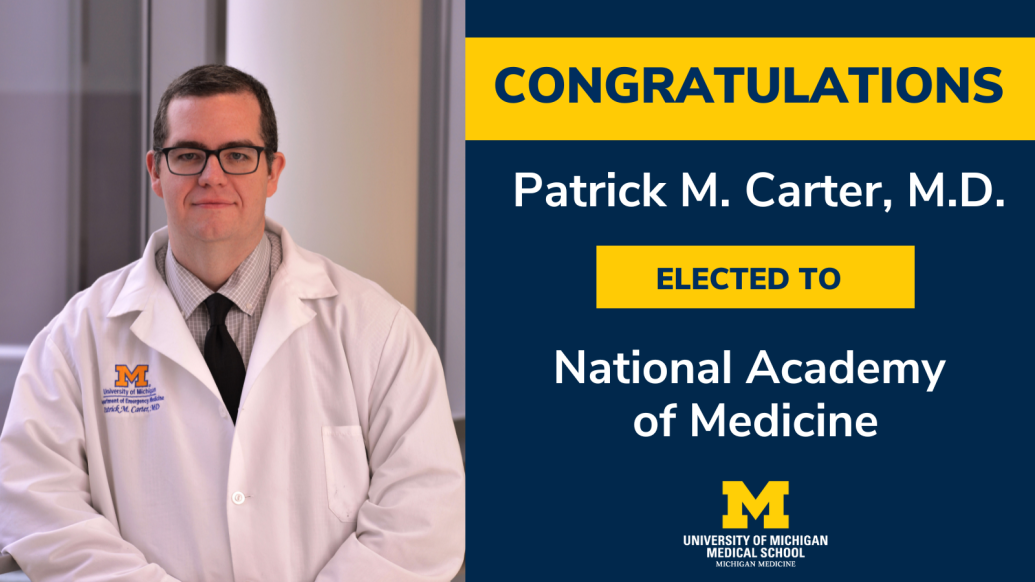11:01 AM
Author |

This morning, Patrick M. Carter, M.D., was elected to the National Academy of Medicine, or the NAM, which is one of the highest honors in the fields of health and medicine and recognizes individuals who have demonstrated outstanding professional achievement and commitment to service. He joins a small, but diverse class of just 90 regular members and 10 international members.
Carter was recognized because of his unique contributions to the field of firearm injury prevention. His incredible scope of work within the development, testing and implementation of emergency department-based interventions to decrease firearm and youth violence, as well as associated risk behaviors, such as substance use among high‐risk urban youth populations, remains unparalleled.
New members of the NAM are elected by current members through a process that recognizes individuals who have made major contributions to the advancement of the medical sciences, health care and public health.
The organization works alongside the National Academy of Sciences and National Academy of Engineering to provide independent, objective analysis and advice to the public and conduct other activities to solve complex problems and inform policy decisions.
Patrick M. Carter, M.D.
Carter is an associate professor of emergency medicine at the University of Michigan Medical School and, an associate professor of health behavior and health education at the U-M School of Public Health.
He serves as the the co-director of the U-M Institute for Firearm Injury Prevention and the co-director of the CDC-funded U-M Injury Prevention Center. Carter’s research is within the field of firearm injury prevention, specifically emergency department‐based interventions to decrease firearm and youth violence and associated risk behaviors.
In addition to his individual research program, Carter also currently serves as principal investigator of the Coordinating Center for the NIH Community-Academic Partnerships for Firearm Violence Prevention Network, and on the only T32 post-doctoral research training program on firearm injury prevention in the country.
Carter is the past-chair of the American College of Emergency Physicians Trauma and Injury Prevention Section and was a part of the leadership team for the Eunice Kennedy Shriver National Institute of Child Health and Human Development-funded Firearm Safety among Children and Teens Consortium. He also serves as an assistant editor for the Annals of Emergency Medicine and has served as a member of the technical advisory group focused on developing a firearm research agenda for the American College of Emergency Physicians.
Carter has research funding as a primary investigator and/or co-investigator on grants from the National Institute on Drug Abuse, National Institute on Alcohol Abuse and Alcoholism, Child Development-Community Policing program and National Institute of Child Health and Human Development. Notably, these initiatives all focus on the fields of violence and injury prevention.

Department of Communication at Michigan Medicine





